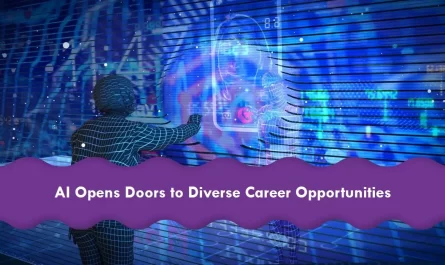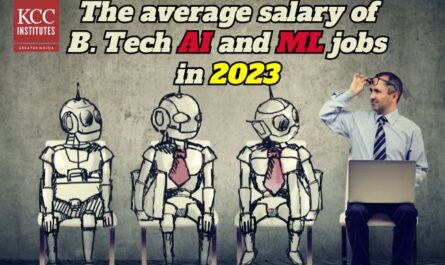Apple is harnessing the power of AI to create a brighter future for its customers and the global community. The company has maintained a steadfast commitment to employing AI in a responsible and ethical manner. Their dedication extends to crafting AI technologies that serve the greater good by ensuring that the advancements made benefit all individuals.
This approach exemplifies Apple’s ongoing efforts to not only innovate and enhance user experiences but also to contribute positively to the broader world by leveraging AI in a conscientious and inclusive manner.
Experts from a leading data science company in India are sharing their insights here –
Machine Learning for Siri
Apple has been investing in machine learning and natural language processing to improve Siri which is its virtual assistant. By using AI, Siri has become more context-aware and capable of understanding user intent by making it more useful in everyday tasks.
This technology allows Siri to better understand user intent and context by making it more responsive and helpful in performing tasks and answering queries. Apple aims to create a more intuitive and user-friendly AI assistant by contributing to a more seamless and interactive experience for its users. It is being done by improving Siri’s ability to interpret and respond to natural language.
Core ML
Apple introduced Core ML, a machine learning framework that allows developers to integrate machine learning models into their apps. With Core ML, developers can leverage pre-trained ML models to power intelligent features within their applications. This technology empowers app creators to implement functionalities like image recognition, language processing, and recommendation systems.
By providing a user-friendly tool for ML integration, Core ML encourages the development of AI-driven features, enhancing the capabilities and user experience of iOS apps across various domains, from photo editing to personalized content suggestions. This democratization of AI helps Apple’s ecosystem stay at the forefront of technological innovation.
Face ID
Face ID, Apple’s facial recognition system, relies on AI to create a 3D map of a user’s face for secure authentication. This technology has been used in newer iPhone and iPad models. It employs advanced algorithms and depth-sensing technology to capture intricate facial features, making it highly secure and accurate for user authentication.
When a user unlocks their iPhone or iPad, Face ID scans and matches their unique facial geometry, granting access only to authorized individuals. This AI-driven technology enhances user security by replacing traditional passcodes or fingerprint recognition, offering a convenient and robust biometric authentication method for Apple device users.
Photography
Apple’s camera software uses AI to enhance photos through features like Smart HDR, computational photography, and scene recognition. These AI-driven features improve the quality of images captured with Apple devices. Through AI-driven features like Smart HDR and computational photography, Apple’s camera software optimizes image capture.
Smart HDR combines multiple exposures to capture more detail in both dark and bright areas of a photo, resulting in well-balanced and high-quality images. Additionally, AI-powered scene recognition helps the camera identify what it’s capturing, adjusting settings for the best possible shot. Overall, Apple’s use of AI in photography ensures that users consistently achieve exceptional image quality, even in challenging lighting conditions.
Animoji and Memoji
They are expressive features on Apple devices that utilize facial recognition and tracking technology. Animoji creates animated emojis that mimic a user’s facial expressions in real time, allowing them to send personalized, animated messages. Memoji, on the other hand, enables users to create customizable 3D avatars that resemble themselves.
These avatars can be personalized with various features, such as hairstyle, accessories, and more. Both Animoji and Memoji enhance communication by adding a fun and engaging dimension to messaging and video chats, making conversations more dynamic and enjoyable for users.
Health and Fitness
Apple employs artificial intelligence in its products, notably the Apple Watch and Health app, to monitor and assess users’ health and fitness. AI algorithms enable features like fall detection and continuous heart rate monitoring, enhancing user safety and providing valuable health insights.
The Apple Watch’s AI-driven capabilities go beyond basic activity tracking by offering comprehensive health data and alerts that empowers users to take charge of their well-being. These AI-powered tools not only gather information but also provide personalized health recommendations, making them an integral part of Apple’s ecosystem for those seeking a healthier lifestyle.
HomeKit and Home Automation
Apple’s HomeKit is a framework that facilitates seamless integration of smart home devices. It can be used on Apple devices like iPhones and iPads. It utilizes AI to upgrade home automation by empowering clients to control lighting, thermostats, and locks from their iOS gadgets.
HomeKit prioritizes privacy, as it processes data locally on the user’s device, limiting exposure to the cloud. It also provides a unified control platform, allowing users to set up automation routines, voice commands via Siri, and remote access for managing their smart home ecosystem securely and efficiently.
Privacy-Focused AI
Apple has emphasized its commitment to user privacy, using techniques like on-device processing and differential privacy to protect user data while still providing the benefits of AI-driven features. It involves employing techniques like on-device processing and differential privacy to ensure that sensitive information is not shared or stored on external servers.
By prioritizing user privacy, this approach allows AI systems to provide personalized services and insights without compromising individual data security, maintaining user trust, and adhering to stringent privacy standards and regulations. Apple, for instance, has been a notable proponent of this approach, utilizing on-device processing to minimize data exposure while delivering AI-driven features such as Siri and personalized recommendations.
Apple Maps
AI-driven improvements in Apple Maps include better navigation, traffic prediction, and mapping data. AI algorithms process data from various sources to provide accurate and real-time information, including traffic conditions, road closures, and route recommendations. Machine learning helps improve map accuracy and guides users more efficiently.
This AI-driven approach has enabled Apple Maps to offer advanced features such as real-time traffic prediction, providing users with a smoother and more informed navigation experience. Additionally, Apple Maps continuously updates its database to maintain the accuracy and reliability of location-based services, making it a competitive alternative in the navigation app landscape.
Content Recommendations
Services like Apple Music and Apple News use AI to provide personalized content recommendations based on user preferences and behavior. It processes data related to the type of music a person enjoys or the articles they read. By understanding these patterns, AI generates personalized content recommendations.
For example, it suggests new songs or articles that align with the user’s taste, enhancing the overall user experience by delivering content tailored to individual interests. This personalization not only keeps users engaged but also helps them discover new content they are likely to enjoy.
Summary
The best machine learning companies in India are at the forefront of these trends. They are using their expertise to develop innovative AI solutions that are making a real difference in the world. Apple is dedicated to utilizing AI for the betterment of its customers and society at large. They emphasize ethical and responsible AI usage, striving to develop technologies that benefit everyone. Apple’s focus extends beyond just enhancing user experiences, aiming to make a positive impact on the world through thoughtful AI applications.



